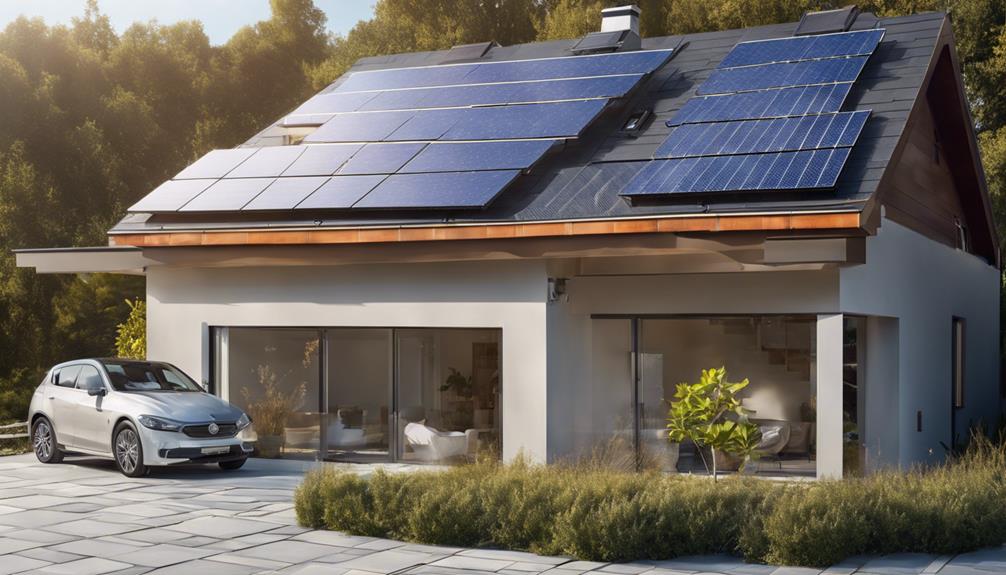
Solar energy is becoming increasingly popular as a sustainable and renewable source of power. However, one of the most significant challenges of solar energy systems is their reliance on sunlight. This is where battery backup for solar panels comes into play. In this comprehensive guide, we will explore the importance of battery backup systems, their various types, benefits, and considerations for homeowners looking to invest in solar energy.
Understanding Battery Backup for Solar Panels
Battery backup for solar panels serves as a storage solution that enables homeowners to use solar energy even when the sun isn’t shining. Solar panels generate electricity during the day, but without a battery system, any excess energy produced is often sent back to the grid. Battery storage allows you to retain this energy for use during the night or on cloudy days, ensuring a reliable power supply. This technology is rapidly evolving, making renewable energy more accessible and efficient for homeowners.
The Benefits of Installing a Battery Backup System
Investing in battery backup for solar panels offers numerous benefits. First and foremost, it enhances energy independence. Homeowners can rely less on the grid and reduce their utility bills, as they can store solar energy for later use. Additionally, battery systems provide backup power during outages, ensuring that essential appliances remain operational. Furthermore, with advancements in technology, modern batteries are becoming more efficient, longer-lasting, and cost-effective, making them an attractive option for many households.
Types of Battery Backup Systems for Solar Panels
When considering battery backup for solar panels, it’s essential to understand the different types of battery systems available. The most common options include lithium-ion batteries, lead-acid batteries, and flow batteries. Lithium-ion batteries are known for their high energy density, longer lifespan, and faster charging capabilities. Lead-acid batteries are often more affordable but have a shorter lifespan and require regular maintenance. Flow batteries, although less common, offer scalability and long-duration energy storage. Each type has its pros and cons, and the best choice depends on individual energy needs and budget.
Key Factors to Consider When Choosing a Battery Backup System
Selecting the right battery backup system for your solar panels involves considering several factors. Firstly, evaluate your energy consumption patterns to determine the capacity you need. The battery’s depth of discharge (DoD) is also crucial, as it indicates how much energy can be safely used without damaging the battery. Additionally, consider the battery’s efficiency, warranty, and installation requirements. It’s also vital to check compatibility with your existing solar system and ensure that the inverter can handle the additional load from the batteries.
How to Optimize Your Solar Panel and Battery Backup System
To maximize the benefits of your solar panel and battery backup system, optimization is key. Start by ensuring your solar panels are installed in an optimal location where they can receive maximum sunlight. Regular maintenance, such as cleaning the panels and checking connections, will enhance efficiency. Additionally, consider smart energy management systems that can help monitor energy consumption and battery usage. These systems can automatically direct energy where it’s needed most, ensuring that you’re getting the most out of your solar and battery setup.
The Cost of Battery Backup for Solar Panels
The cost of battery backup for solar panels can vary widely depending on the type of battery, capacity, and installation requirements. Generally, lithium-ion batteries are more expensive upfront but offer longer lifespans and lower maintenance costs. On average, homeowners might spend anywhere from $5,000 to $15,000 for a complete battery backup system, including installation. However, it’s crucial to consider this as an investment. With potential savings on energy bills, tax incentives, and increased property value, the long-term financial benefits can outweigh the initial costs.
Government Incentives and Rebates for Battery Backup Systems
Many governments and local utilities offer incentives and rebates to encourage the adoption of solar energy and battery backup systems. In the United States, the Federal Investment Tax Credit (ITC) allows homeowners to deduct a significant percentage of the cost of solar systems from their federal taxes. Additionally, some states provide specific incentives for battery installations. It’s essential to research available grants, loans, and incentives in your area, as these can substantially reduce the overall cost of your battery backup for solar panels.
Conclusion: Making the Switch to Solar with Battery Backup
As the world shifts towards renewable energy sources, battery backup for solar panels is becoming increasingly vital for homeowners seeking energy independence and reliability. By understanding the types of battery systems available, evaluating your energy needs, and considering the associated costs and incentives, you can make an informed decision that benefits your household and the environment. Investing in a solar panel system with battery backup not only enhances your energy security but also contributes to a more sustainable future. Whether you’re looking to reduce your energy bills, protect against power outages, or decrease your carbon footprint, battery backup for solar panels is an investment worth considering.
In summary, the integration of battery storage into your solar system can significantly enhance your energy efficiency, provide peace of mind during outages, and ensure that you make the most of the renewable energy generated by your solar panels. As technology continues to evolve, the future of solar energy looks brighter than ever, making now the perfect time to explore your options and take the plunge into sustainable living.





